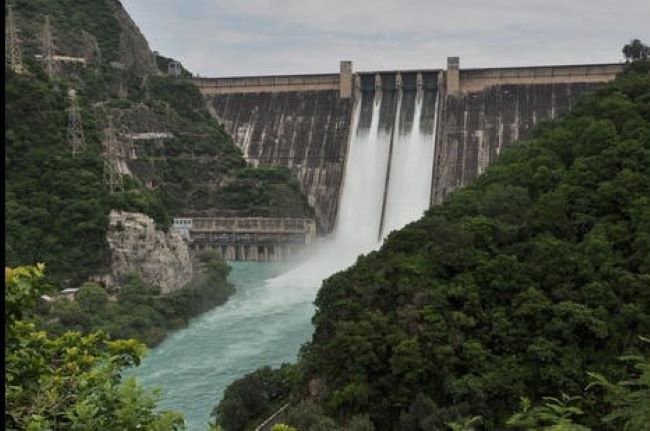 The Bhakra Beas Management Board (BBMB) today held a press conference where Chairman Manoj Tripathi addressed critical issues related to water inflows, dam safety, flood control, and the ongoing controversy around security deployment at BBMB installations. The discussion highlighted both the achievements and the challenges in managing unprecedented water levels this year.
The Bhakra Beas Management Board (BBMB) today held a press conference where Chairman Manoj Tripathi addressed critical issues related to water inflows, dam safety, flood control, and the ongoing controversy around security deployment at BBMB installations. The discussion highlighted both the achievements and the challenges in managing unprecedented water levels this year.
According to BBMB, both Bhakra Dam and Pong Dam (Beas Dam) have received record amounts of water in history so far. Pong Dam, in particular, has registered 20 percent more water inflow compared to 2023, putting immense pressure on its storage capacity. While Bhakra Dam is currently one and a half feet below its danger level, Pong has already exceeded its designed level of 1390 feet and touched 1410 feet.
Chairman Tripathi clarified that BBMB does not release water without consent. Every release is decided in consultation with all stakeholder states, including Punjab, Haryana, Himachal Pradesh, and Rajasthan. A technical committee reviews the situation and determines how much water needs to be discharged, keeping both dam safety and downstream concerns in mind. He added that water has been released continuously from Pong Dam since August 6 in a controlled manner.
Reflecting on past disputes, Tripathi said that when Punjab and Haryana were locked in a tussle, Bhakra Dam’s level had reached 1550 feet. He explained that had there been more flexible water-sharing, the pressure on the system could have been reduced. For example, giving 88 MCM of water to Haryana could have lowered Bhakra’s level by three feet, easing the risks during monsoon.
The Chairman strongly emphasized the role of dams in preventing disasters. Without Bhakra and Pong, he said, floods would have started in June itself, causing widespread destruction across Punjab and Haryana. The dams, despite challenges, have acted as crucial regulators of floodwaters.
BBMB has also been closely working with three weather forecasting agencies to monitor rainfall and inflows. At present, the flood situation is under control, and water flow has normalized. Tripathi explained that if there is no rainfall for the next three to four days, the condition will improve further. However, if inflows cross the storage capacity, water releases will become unavoidable, and he urged state governments to ensure their rivers, canals, and drainage systems are strong enough to handle such situations.
On the issue of security, Tripathi addressed the controversy over CISF deployment at BBMB facilities. He clarified that Punjab Police has not been removed, and it continues to handle law and order. However, CISF has been deployed in sensitive zones due to its technical expertise. Out of the four stakeholder governments, three have supported the move, while only Punjab has opposed it. He compared the two forces by saying the difference is like that between “Apple and other companies,” stressing the specialized role of CISF.
Financial contributions were also discussed, with Punjab paying 39 percent, Haryana 29 percent, and Himachal Pradesh 27 percent towards BBMB’s operations. This reflects the shared responsibility model under which the board functions.
Finally, Tripathi dismissed allegations that he had been held hostage during recent protests. He clarified that he was “sitting in the guest house, not held anywhere,” though he admitted that demonstrations against BBMB decisions are part of the current situation.